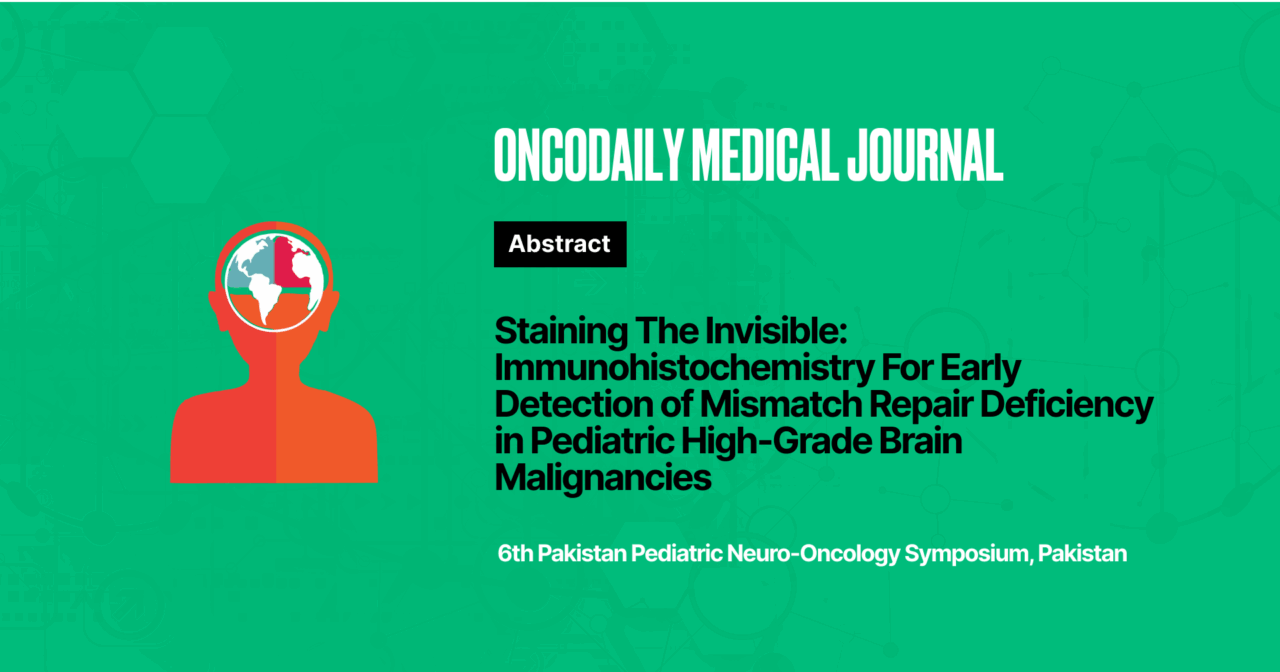Staining The Invisible: Immunohistochemistry For Early Detection of Mismatch Repair Deficiency in Pediatric High-Grade Brain Malignancies
Abstract
Introduction: Constitutional mismatch repair deficiency (CMMRD) is a rare, autosomal recessive cancer predisposition syndrome caused by biallelic mutations in DNA mismatch repair (MMR) genes. Pediatric central nervous system (CNS) tumors, particularly high-grade gliomas, are common in CMMRD. Early diagnosis is critical due to resistance to standard therapies and potential benefit from immunotherapy. Immunohistochemistry (IHC) for MMR proteins is an accessible screening tool in resource-limited settings.
Methodology: We conducted a retrospective study of pediatric patients diagnosed with high-grade brain tumors between 2013 and 2022 at a single tertiary center. From 269 CNS tumors, 21 cases with sufficient tissue samples were included. IHC was performed for MLH1, MSH2, MSH6, and PMS2 on formalin-fixed, paraffin-embedded tumor sections. Clinical features, family history of malignancy, and parental consanguinity were reviewed.
Results: Among the 21 patients (median age: 108 months), 5 (23.8%) had parental consanguinity and 11 (52.4%) had a positive family history of malignancy. One patient (4.7%) with anaplastic astrocytoma exhibited loss of MSH6 expression on IHC. Although diagnosed postmortem, subsequent evaluation of the patient’s sibling led to identification of a pathogenic homozygous MSH6 variant, confirming CMMRD.
Conclusions: MMR deficiency was identified in 4.7% of pediatric high-grade brain tumors in this cohort. IHC proved to be a valuable, cost-effective first-line tool for detecting MMRD, especially in low-resource settings. Routine IHC screening in pediatric high-grade CNS tumors is recommended to enable early diagnosis, appropriate treatment planning, and familial genetic counseling.
Conflict of Interest: None
Funding: This study has been supported by a research grant of the Turkish Pediatric Oncology Group (TPOG)
Disclosure Statement: None
License: This article is published under the terms of the Creative Commons Attribution 4.0 International License (CC BY 4.0).
© Rejin Kebudi, 2025. This license permits unrestricted use, distribution, and reproduction in any medium, provided the original author and source are credited.





